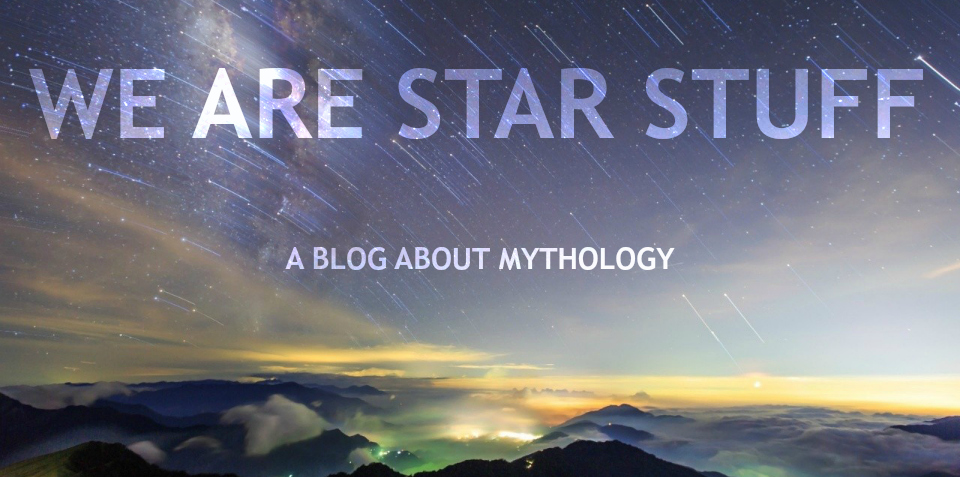Airmid, also known as Airmed or Airmeith, is the Celtic Goddess of the Healing Arts. She was a member of the Tuatha De Danaan, the most ancient race of deities in Ireland and just as they did, she had great magickal powers…
Image by Couleur on Pixabay.


This is fascinating! I had no idea some of the Tuatha De Danaan were also considered deities.
LikeLiked by 1 person
Well, none of the literary sources refer to the Tuatha as deities, but it’s usually assumed that they were pre-Christian gods and goddesses who were downgraded to heroic humans by Christian writers who obviously couldn’t write about deities of another religion. So there is a little bit of speculation there, but it’s pretty generally accepted.
LikeLiked by 2 people
Hi! I’ve been meaning to introduce myself and applaud your great blog! You’re highly resourceful and your citations are impressively varied, how do you go about hunting down your sources for your blog topics?
I, and I stress that I’m a complete amateur, was spurred to comment to ask why you say the Tuatha De aren’t referenced as deities? As far as I’m aware, the 7th c Tirechan’s Collectanea mentions, “men of the side, or earthly gods, or apparitions,” which ambiguously states side dwellers, as the Tuatha De are described, are deities. Fiacc’s Hymn also equates the people of the side with gods, “The folk of Ireland… used to worship the tribes of the side”. Then there are mentions of individuals of the Tuatha De called gods, like an Dagda, or Brigid in Sanas Cormaic to list a couple examples.
It’s a great fun discussing this stuff, thank you much for your time!
Page 317 has Fiacc’s hymn, though I used John Carey’s translation. I’m sorry I couldn’t find a link to Tirechan
https://archive.org/details/thesauruspalaeo02stok/page/316/mode/2up
LikeLiked by 1 person
Thank you! I’m so glad you enjoy the posts. I do try to keep it varied, mainly by investigating whatever interests me or answers my questions (some of the obscure deity posts came about that way).
In answer to you question, I was thinking more of the Book of Invasions, which sees the Tuatha as essentially human, but with powers that most mortals don’t have. Other texts try to have it both ways: the Scel Tuain meic Cairill refers to the Tuath De ocus Ande (tribe of gods and non-gods) who settled Ireland, and may have come from the “exiles who came from heaven”. The texts you mention seem to be pretty unequivocal about the god-ness of the Tuatha, however, so it would seem that they were certainly seen as deities at least some of the time, post-Christianity.
Clearly I was too sweeping when I said “none” of the sources refer to the Tuatha as deities, and I think there may well be a post in this. Thank you to you and Ceridwen SilverHeart for spurring me on to question my own ideas about this.
LikeLike
I can’t wait to read anything you post, and if a new post does come to fruition over this it’ll be very enjoyable.
The phrase “de ocus ande” is very fascinating. I know that professor John Carey of University College Cork pondered it’s appearance in some versions of Lebor Gabala Erenn, “Dee in t-aes dana. Andei immorro in t-aes trebtha.” and hesitantly puts forth the possibility that the phrase itself actually does reflect some preChristian belief, noting the Tuatha De’s routine connection to the trades, even when they are referred to as gods or immortal beings, like the “tri dee dana” described in Tochmarc Etain. But it’s too long to go into detail here with any justice, and it’s in his book about metallurgy and magic and not online.
I’d cautiously ask if “De ocus ande” is mirrored in any capacity with the mysterious Middle Welsh phrase “oeth ac anoeth,” that pops up in various tales. Any suggestions?
Thanks for your great reply, sorry it took so long reply back.
LikeLiked by 1 person
It could possibly be, since you could translate it as the “powerful and non-powerful (or weak)”. (I’m following John Rhys here: https://books.google.ca/books?id=22CcCwAAQBAJ&pg=PA619&lpg=PA619&dq=%E2%80%9Coeth+ac+anoeth%E2%80%9D&source=bl&ots=7N8WrNr5a_&sig=ACfU3U3E_MOYeVCkrBvq3JkUV5XYYtKZuw&hl=en&sa=X&ved=2ahUKEwi2vo3x7r3pAhUSU98KHca9CCgQ6AEwA3oECAgQAQ#v=onepage&q=%E2%80%9Coeth%20ac%20anoeth%E2%80%9D&f=false) However, Jones’ Celtic Encyclopedia (https://www.ancienttexts.org/library/celtic/jce/oethanoeth.html) casts doubt on his etymology, and seems to think that oeth ac anoeth is an otherworldly place, possibly the home of the dead. You might find Patrick Sim’s comments on Annfwn and the andedion interesting. (https://books.google.ca/books?id=4QgWDAAAQBAJ&pg=PA58&lpg=PA58&dq=andedion&source=bl&ots=UI5dQUWMzg&sig=FojqjlbYqUhf0zMQ0HKCoWkYuqc&hl=en&sa=X&ved=0ahUKEwijyvj3krzWAhWCZCYKHTAtBE04ChDoAQhUMAk#v=onepage&q=andedion&f=false). Sorry about the lengthy links, but it’s the easiest way to the sources.
LikeLike
Pingback: The Ambiguous Status of the Tuatha De Danann | We Are Star Stuff
Fascinating read!! Glad I found you.
LikeLiked by 1 person